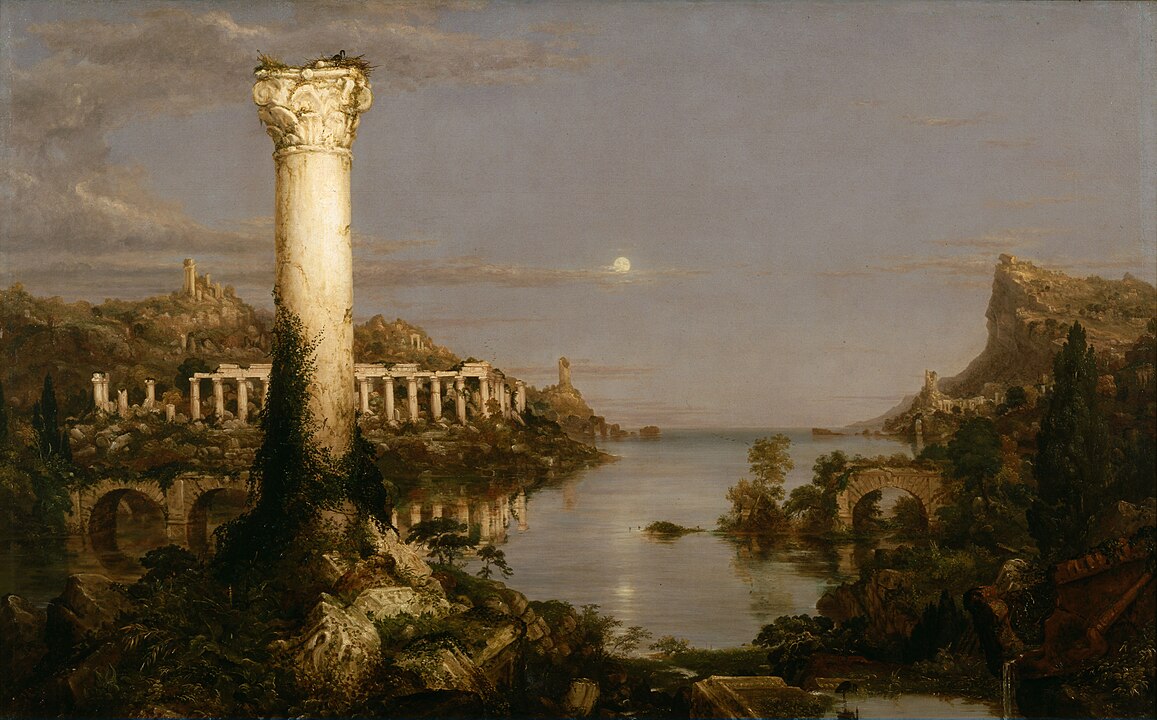
I arrive at many books, media, information, regardless of its topic: history, music, philosophy, science… confronted by the bold declaration of civilization. I have been taught to be skeptical about the connotations of this word: The Greco-Romans were often looked upon, occasionally including Ancient Egypt and China, but most of the time (for me) it evokes the images of a well-functioning democracy, marble pillars, and the temperate winds of the mare nostrum.
I acknowledge the despair that Adichie captured in The American Embassy, the anxiety of being denied entrance. I recall when my parents and I stood in line for the Visa, they seemed stressed out even when they reassured me there was nothing to worry about. I grew up with a group of students who strive for the top universities abroad, only to stuff away their “Chinese” identity as if it were a deformation when it comes to preparing for applications.
We speak of the “East-Asian Experience” as if it were a collective memory. In some ways, it is- the looming shadows of inequality that are only temporarily cast away by economic development, the constant competition between peers, not to mention the condition of being in an international school, constantly pestered with doubts on cultural identity. At times we seek to jump outside the box of sexist and unreasonable traditions and break the silence of our own version of a mos maiorum, only to be confronted by the blatant knowledge of looking at myself in a mirror and seeing an Asian face. And here I go again, using the lexis from Ancient Roman politics- something I know even better than the history of my birth country.
And thus I struggle to balance myself on the wall between civilizations, unable to step onto the soil of either one. I dangle my legs midair as neither citizen nor barbarian, for whichever land I choose to step onto, the other may be closed to me ever since. Perhaps.
When Scipio Aemilianus returned to Rome only to discover the people turned on him, he declared that he would not be bothered by whom “Italy is only a stepmother”. Among his compatriots are people like Tiberius and Gaius Gracchus who had shed blood to advocate Roman citizenship for the Italian residents, so did the many who later fought in the Social War. The Romans did not perish from some foreign enemy; they were severed by the city walls, the limbo between the sacred pomerium and the barbarian lands, devoid of civitas.
The city, be it the polis or the urbs, finds its way to my attention wherever I turn to, blinding me with their light. The city is a complex amalgamation of identity, language, and ethnicity. Gasset, in his book The Revolt of the Masses, defines that “Civilization is, before all, the will to live in common.” And none other form embodies this spirit better than the city life. The engagement with such an overwhelming number of other people, strangers, and neighbors, each day is vastly different from the rural/suburban life, thrusting oneself into an endless, inevitable torrent of differences. Without the affirmation of one’s unique identity by the environment, one could only rely on the programmatic schedule each day to gain a sense of control in life.
The city might as well be the pivot of the fragile equilibrium of prosperity, or the beginning of cracks and flaws that will eventually devour the entire Empire, just as how it once sustained it like the obstinate heartbeat of the swain. It drains resources from its surroundings and, subsequently, draws more people to migrate towards these gatherings.
The city embodies the anxiety of being exposed to the elements. Unable to contain nature with the limited walls, we instead isolate ourselves by trapping ourselves in them. It is not only a public space, but also an unspoken concensus, a dense blanket to muffle our fear of the “other”. Their fear was directed towards an idealized opponent – not the Amazons, nor the Cimbri, nor the Gauls – but a metaphorical anti-Rome. It no longer mattered if the opponent was belligerent or pacifist, strong or weak; they are not Rome, therefore they are barbaric.
Why fear the “other”? Why does Ovid sigh when he sees “the barbarians live amongst us, without discrimination, and also occupy more than half the houses”? There are many questions that I still have, and many I will investigate as I delve deeper into my experience of reality.
Why fear the bounds of city walls when the sun shines on both sides alike?
